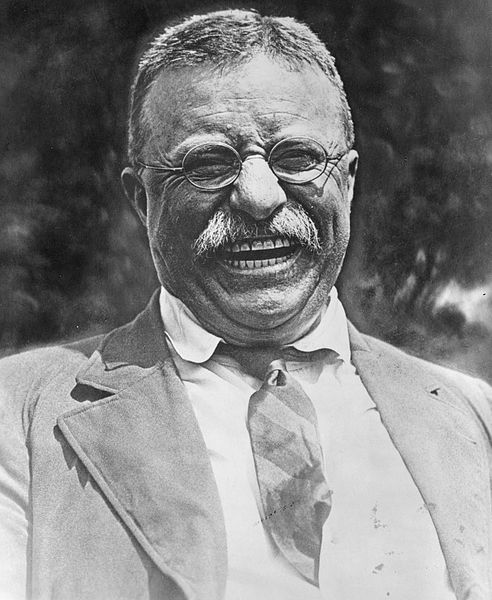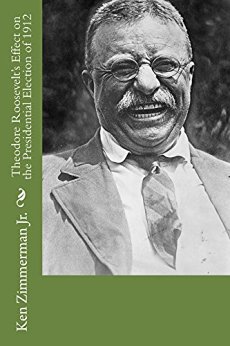Theodore Roosevelt Wins 6 States in 1912
After Theodore Roosevelt won reelection in his own right during November 1904, TR impetuously announced he would not run for another term. His inner circle, particularly his wife Edith, would think the decision a mistake. However, once Theodore Roosevelt made a pronouncement, he intended to keep his word.
Roosevelt picked his Secretary of War and former Governor of the Phillipines William Howard Taft to replace him. Taft would rather have been a Supreme Court Justice but accepted the wishes of his friend. With Roosevelt’s support, Taft won the presidency in the 1908 Presidential Election. TR congratulated Taft, then promptly left for a year-long safari in Africa with his son Kermit Roosevelt.

Theodore Roosevelt Smiling on the Campaign Trail in 1912
When Roosevelt returned from Africa, Progressive Republicans approached Roosevelt about his successor’s lack of follow through on Roosevelt’s progressive policies. While the criticism was not wholly warranted, a series of misunderstandings arose between the men, which led Roosevelt to challenge his hand-picked replacement for the 1912 Republican presidential nomination.
Roosevelt seemed to have the majority of everyday Republican support but was outmanuveured at the convention. Roosevelt was angered by what he saw as treachery to deprive him of the Republican nomination, so he ran as a third party candidate with the “Bull Moose” or Progressive Party.
Theodore Roosevelt became the most successful third party candidate in American history. Roosevelt finished second in both the popular and electoral vote. Roosevelt won the popular vote of six states: California, Michigan, Minnesota, Pennsylvania, South Dakota and Washington state. Roosevelt won all the electoral votes of five of the states and took 11 electoral votes to Wilson’s 2 electoral votes in California.
William Howard Taft won only two states: Utah and Vermont. He finished a distant third to President-elect Woodrow Wilson and his old mentor Theodore Roosevelt.
Ironically, Roosevelt’s entry into the race guaranteed the election of someone, who was a progressive but whose ideas were very different from Theodore Roosevelt. Roosevelt’s and Wilson’s ideas would dominate American politics for most of the Twentieth Century with candidates claiming intellectual lineage with one man or the other. Wilson won 435 electoral votes to 88 for Theodore Roosevelt and 8 for Taft.
Today would be Theodore Roosevelt’s 158th birthday. In honor of his birthday and with a U.S. Presidential election imminent, I’m giving away Theodore Roosevelt’s Effect on the Presidential Election of 1912 in e-book on Amazon from October 27-31, 2016.
You can leave a comment or ask a question about this or any post on my Facebook page and Twitter profile.
Sources: The Saint Louis Post-Dispatch, November 6, 1912, p. 1 and November 7, 1912, p.1
Pin It

